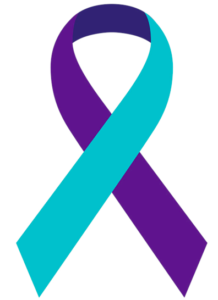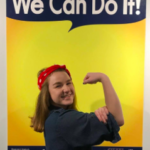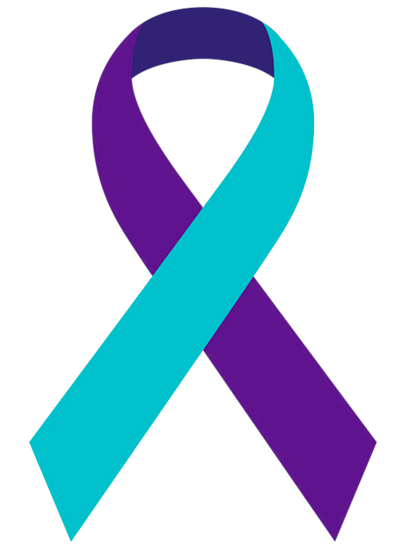 I’ve recently come to terms with a real yet difficult truth: While sharing mental health resources is crucial, it’s not enough.
I’ve recently come to terms with a real yet difficult truth: While sharing mental health resources is crucial, it’s not enough.
Sure, we can post the Suicide Hotline to Facebook. Sure, we can encourage people to reach out for support when they need it. These aren’t unhelpful suggestions, per se, but we have to ask ourselves: Are we sharing those suggestions so people get the help they need, or so we can feel good about ourselves?
I’ll say it: While I share them hoping to help people, I know it’s a simple way to feel like I’ve checked off a box on my to-do list as an advocate, and I know calling a hotline isn’t the first step I’d take if I was struggling. In fact, I’ve heard several friends say their hotline experience was actually more harmful than helpful.
The harsh reality of mental health treatment in the United States is this: People don’t receive it. Statistics back this up — 57 percent of adults and 49 percent of youth struggling with mental illness weren’t able to get treatment, and people of color are even less likely to receive it. Additionally, people in the LGBTQIA+ community are up to 12 times as likely to attempt suicide. People need more help than we’ve given them.
A few days ago, I saw a tweet that discussed this further, saying, “I really hate how suicide prevention month every year is reduced to ‘check on your friends’ and not universal health care, to defund the police, accessible mental health services, and peer support programs. That analysis is so corny.”
And I’ve never been so grateful to feel so called out.
Checking on our loved ones is easy and important, but we need to do so much more. Suicide and comorbid mental illnesses, like depression and eating disorders, entail many deeply rooted struggles that require more support than a simple question like “How are you?” can offer.
So what can we do this Suicide Prevention Month to make authentic, actionable changes that appeal and truly help people who need them?
Below are 10 ways you can be more active in the suicide prevention realm.
- Attend a mental health training so you can learn how to be a better ally. Mental Health America offers an adult version and a youth version. Additionally, Embody Carolina offers an amazing, interactive, online training on eating disorders.
- Support your loved ones struggling with any kind of mental illness, as several kinds can unfortunately end in suicide. Eating disorders, for example, are the second deadliest mental illness, in which suicide is one of the reasons.
- Vote for the presidential candidate you believe has the best mental health and health care policy. If you vote in-person, vote early to avoid crowds and wear a mask. If you request a ballot, make sure you drop it off on time. This article explains options for returning your ballot during this time in which COVID-19 and USPS funding are an issue.
- If you think someone is suicidal, ask them directly. When I attended a mental health training, our leader explained that we aren’t “putting the idea of suicide in someone’s head” by asking them directly if they feel that way. If we worry someone is struggling with suicidal ideation, they likely are, and we need to step in immediately.
- Don’t call the police on people you believe are suicidal. “Wellness checks” by police can be highly triggering and anxiety-inducing for people, worsening their mental health instead of improving it. For other options on helping someone in an immediate crisis, see this post.
- If you’re a mental health professional, make your rates more accessible. Affordability is one of the principal reasons why over 50 percent of people don’t get the professional help they need with mental health. Lower rates can save a life. If you’re a therapist, psychiatrist or other mental health provider, consider reducing your rates, implementing a sliding scale or accepting more brands of insurance.
- Raise awareness about inexpensive, easy-to-access mental health resources. Lists of these resources are best as not everyone can access or will feel comfortable with every type of resource. Besides the Suicide Hotline (1-800-273-8255), the Crisis Text Line (741-741) is an option for those who are more comfortable or able to text. Additionally, this article is an example of a list of other online, cheaper resources.
- When others need to talk, validate them and be empathetic, even if you don’t understand. You may not understand why someone is feeling the way they are, but keep in mind their emotions and thoughts are very real to them. Validate their struggles empathetically; don’t minimize what they’re saying or try to solve their problem too quickly. This Brené Brown video explains empathy versus sympathy. Also, asking your loved one “How can I best support you?” is a great idea.
- Advocate for social justice issues. Oppression and injustice, in its many forms, play a significant role in mental health. This Women AdvaNCe article explains some ways you can advocate for others dealing with marginalization.
- Speak out against problematic media. Shows like “13 Reasons Why” and movies like “To the Bone” are extremely problematic in many ways, including in their portrayal of mental illness. Researching, thinking and talking with others about why they’re problematic is important. For example, whose stories are they leaving out? How are they portraying people with mental illness in a false, harmful light?
As equally as important is this: We can’t become inactive in the suicide prevention realm once this month ends. We must carry out these policy changes and activism efforts all year. Mental illness doesn’t go away when awareness of it does. We can’t wait until we lose another person to suicide to talk about preventing it.
If you have lost someone to suicide, make sure you say they “died by suicide” rather than “committed suicide” or another similar phrase. By saying “died by suicide” instead, you show suicide results from mental illness and that we shouldn’t criminalize people for their struggles.
And ask yourself this question often: How can I save a life today?
 Ashley Broadwater is a recent graduate of UNC-Chapel Hill, where she studied Public Relations in the Hussman School of Journalism and Media. She’s passionate about mental health, body positivity, relationships, Halloween and Dad jokes.
Ashley Broadwater is a recent graduate of UNC-Chapel Hill, where she studied Public Relations in the Hussman School of Journalism and Media. She’s passionate about mental health, body positivity, relationships, Halloween and Dad jokes.

There are no comments
Add yours